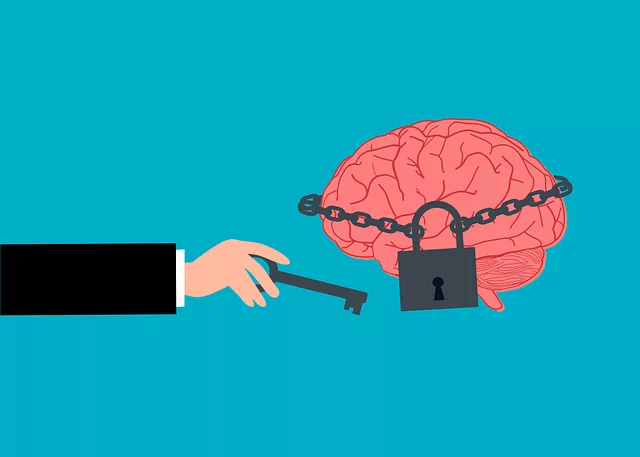Managing Stress: Kaiser’s Inpatient Services and Effective Relaxation Techniques
Kaiser's inpatient mental health services in Littleton offer comprehensive stress management ta…….
In the complex landscape of healthcare, particularly within the realm of mental well-being, understanding access to specialized services is paramount. This article delves into a critical aspect: exploring whether Kaiser, a prominent healthcare provider, offers inpatient mental health services in Littleton, and if so, what makes its approach unique. The focus on Kaiser’s presence in this specific location, Littleton, allows us to scrutinize the availability and quality of inpatient mental health care, which is crucial for severe cases requiring close supervision and specialized treatments. By examining various facets, from global trends to technological innovations, we aim to provide a comprehensive insight into this vital topic.
“Inpatient mental health care” refers to the short- or long-term treatment provided in a hospital or specialized facility for individuals experiencing severe mental health disorders. This form of care is characterized by 24/7 monitoring, intensive therapy, and support to ensure stability and recovery. When we inquire about Kaiser’s offering in Littleton, we are essentially asking about the availability of such critical services within this community, and how they align with Kaiser’s overall healthcare philosophy.
The concept of inpatient mental health care has evolved significantly over the past century. Historically, asylums and psychiatric hospitals were the primary providers of such care. However, with advancements in psychiatry and a growing emphasis on community-based care, the landscape has changed. Today, integrated healthcare systems like Kaiser Permanente play a pivotal role in delivering mental health services, including inpatient care, within their communities.
Access to quality mental health care is a global concern. The World Health Organization (WHO) has recognized this, advocating for improved access to effective, affordable, and accessible mental health services worldwide. In the context of Kaiser and Littleton, understanding international trends is essential. Many countries are experiencing a rise in demand for inpatient mental health services due to increasing mental health awareness and changing societal norms.
Increasing Demand: The global mental health crisis, fueled by rising rates of depression, anxiety, and other common mental disorders, has led to heightened demand for specialized care. This trend is reflected in many developed nations, where access to inpatient services is a growing priority.
Community-Based Care: There is a worldwide shift towards community-based mental health services, moving away from traditional institutional settings. Kaiser’s approach aligns with this trend, focusing on integrated care within local communities.
Regional Disparities: Despite global efforts, disparities exist in access to mental health care across regions. Developing countries often face challenges in funding and implementing comprehensive mental health programs, impacting their ability to provide inpatient services.
The market for inpatient mental health care is influenced by several factors:
Populations in Need: Areas with higher rates of mental health disorders typically experience greater demand for these services. Littleton, known for its vibrant community and diverse population, may present a significant market for specialized care.
Competitor Analysis: Kaiser’s position as a major healthcare provider means it faces competition from other hospitals and clinics offering similar services. Understanding this competitive landscape is crucial for evaluating their service offerings and pricing strategies.
Healthcare investments are increasingly focused on mental health, with governments and private investors recognizing the long-term benefits of accessible care. Kaiser’s financial standing and investment in mental health infrastructure reflect its commitment to this field.
Telehealth: The rise of telehealth has revolutionized mental healthcare, offering remote counseling and therapy. In the context of inpatient care, telehealth can facilitate ongoing support even after discharge, improving recovery outcomes.
Digital Therapeutic Tools: Mobile apps and online platforms provide accessible resources for mental health management. Kaiser has likely integrated these tools to enhance patient engagement and self-care capabilities.
Artificial Intelligence (AI): AI-powered solutions are emerging in mental health monitoring and treatment. These technologies can assist in early intervention, personalized therapy recommendations, and 24/7 support, potentially shaping the future of inpatient care.
Healthcare Regulations: Local, state, and federal regulations govern healthcare providers, including their ability to offer specialized services. Compliance with these regulations ensures patient safety and quality care.
Mental Health Parity Laws: Many countries have implemented laws promoting equal access to mental health services. These laws ensure that insurance coverage for mental health treatment is comparable to physical health services, influencing healthcare providers’ service offerings.
Funding and Reimbursement: Government funding and reimbursement policies play a critical role in determining the affordability and accessibility of inpatient care. Kaiser’s partnerships with local authorities and insurance providers are essential to delivering these services.
One of the primary challenges is the stigma associated with mental health issues, which can deter individuals from seeking help. Critics argue that while Kaiser provides excellent care, societal attitudes may still hinder access, especially for underserved populations.
Solution: Public awareness campaigns and educational initiatives can help destigmatize mental health, encouraging more people to consider inpatient care when needed.
Recruiting and retaining qualified mental health professionals is a global challenge. Inpatient facilities require specialized teams, including psychiatrists, psychologists, and support staff. Critics suggest that staffing shortages may impact service quality.
Strategy: Kaiser could explore partnerships with educational institutions to foster mental health professional development and attract talent.
Inpatient care can be expensive, raising concerns about affordability. Critics argue that while Kaiser offers comprehensive services, the costs may limit access for lower-income individuals.
Approach: Implementing sliding fee scales and insurance coverage adjustments can make inpatient mental health care more accessible to diverse populations.
Kaiser Permanente’s South Bay Region in Los Angeles has been recognized for its innovative approach to inpatient mental health care. Their program focuses on a holistic model, combining medical, psychological, and social support. This integrated care approach has led to improved patient outcomes and higher satisfaction rates.
Key Takeaways:
Denver’s Kaiser Permanente location has successfully engaged the local community to address mental health disparities. Their initiative includes cultural competency training for staff, community outreach programs, and partnerships with local schools and organizations. This collaborative effort has increased access to care for underserved populations.
Lessons Learned:
The future of inpatient mental health care lies in seamless integration of technology. AI, virtual reality (VR), and advanced data analytics will play pivotal roles. Kaiser could explore these technologies to enhance patient monitoring, personalize treatments, and improve discharge planning.
Genomics and personalized medicine are emerging trends, offering tailored treatment plans based on individual genetic profiles. This approach can revolutionize inpatient care, ensuring more effective and efficient treatments.
As telehealth gains acceptance, expanding these services to cover a broader range of mental health disorders could improve access. Kaiser’s existing telemedicine infrastructure can be enhanced to provide more comprehensive remote care.
In the context of “does Kaiser have inpatient mental health Littleton?”, we’ve explored a multifaceted topic revealing the importance and complexities of delivering specialized care. Kaiser’s role in this regard is significant, offering promising models for accessible, high-quality mental health treatment. By addressing challenges and embracing emerging trends, healthcare providers like Kaiser can ensure that individuals in Littleton and beyond receive the critical support they need.
Q: Is inpatient mental health care right for everyone?
A: Inpatient care is recommended for severe or acute mental health conditions requiring close monitoring and specialized treatment. It’s not suitable for all, but it offers a safe and structured environment for recovery.
Q: How do I know if I need inpatient care?
A: If you experience persistent thoughts of self-harm, severe mood swings, or hallucinations, seek immediate help. A mental health professional can assess your needs and guide you towards appropriate treatment options.
Q: Does Kaiser accept all insurance plans for inpatient mental health services?
A: Kaiser’s acceptance of insurance varies by location and plan. It’s best to contact their Littleton facility directly or check their website for specific information regarding insurance coverage.
Q: Can family members visit patients in inpatient care?
A: Visiting hours and guidelines vary between facilities. Kaiser typically allows visits, but they may be limited to certain times and areas to ensure patient privacy and recovery. It’s best to inquire at the facility directly.

Kaiser Permanente in Littleton, Colorado, offers comprehensive inpatient mental health services, pri…….

Anxiety disorders are common global issues, with various types impacting daily life. Kaiser in Littl…….

Mental wellness self-assessment tools, backed by evidence-based practices and accessible in Littleto…….

In the digital age, podcasts offer accessible and effective mental wellness support, with studies sh…….

The RFM model, focusing on social support, personal skills, and emotional control (Resources, Fortit…….